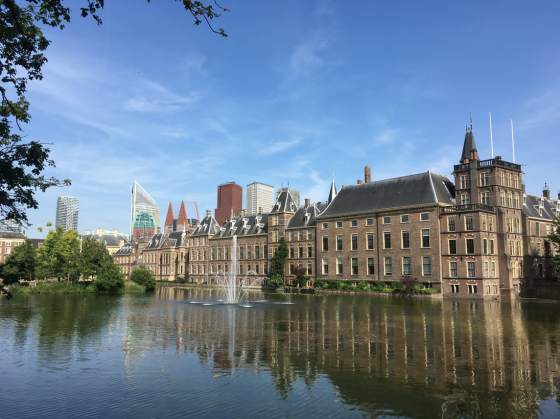More coalition leaks: what do we know about the new cabinet’s plans so far?

The new four-party coalition is set to present its programme for the next four years on Tuesday, but many of the plans have already been leaked. Here’s a round-up of what the papers are reporting so far:
Income tax
- The new coalition will shake up the income tax system by cutting the number of tax bands from four to two from 2019.
- The change will cut the tax bill of someone earning €40,000 by €1,200 a year, but middle and high earners will benefit most. In total, the tax cuts will cost €5bn.
- The new system will involve an income tax rate of 37% on earnings up to €68,000 and 49.5% for all income above that. Currently taxpayers are charged roughly 36.55% on earnings up to €20,000, 40.8% on earnings up to €67,000 and 52% above that.
Mortgages
- The new coalition will reduce the rate at which mortgage holders can deduct interest from tax.
- The deduction will be reduced in four stages of 3%, so that by 2023, home owners will be limited to a 37% deduction. The current rate is 49.5%. The impact of this on people earning over €68,000 a year will be limited by cuts in income tax, the broadcaster said.
- Home owners who still have a mortgage pay an extra tax (eigenwoningforfait) every year based on the official value of their homes. That tax is currently 0.75% but will be reduced to 0.6% to compensate for the reduction in mortgage tax relief.
- According to some reports, this tax will also be gradually extended to people who have already paid off their mortgages.
Asset tax
- The amount paid in asset taxes will be cut by increasing the tax-free limit from €25,000 to €30,000. Assets include savings, shares, art and second homes.
- The parties have also agreed to cut the effective tax rate itself, with is currently around 4%, well above actual returns booked on savings.
Other taxes
- The lower value-added tax rate of 6% will be increased to 9%. The lower rate applies to food, books and entertainment and will add €20 a month to the average family’s grocery and entertainment bill.
- Some form of road pricing will be introduced for road freight traffic.
- Energy taxes will go up.
Employers
- The new cabinet is to cut the basic rates of corporation tax from 25% to 21% while a tax rate of 16% will be levied over the first €200,000 in profits.
- The cuts are to compensate for other changes which will require firms to spend more on sustainability and reaching climate targets, the sources said.
- Employers with up to 25 members of staff will only have to pay one year of sick pay, rather than two, as at present.
- Employers can employ people on temporary contracts for three years rather than two, as at present.
Elected mayors
- The new coalition will pave the way for the introduction of elected mayors but have not yet drawn up plans of how to put this into reality.
- The support of all four coalition parties means there is support of two-thirds of both the upper and lower houses for the change – which is necessary to amend the constitution.
Refugees
- Refugees with residency permits will no longer be able to claim welfare benefits or extra help in paying rent and health insurance for their first two years in the Netherlands.
- Local councils will be responsible for paying for refugees’ housing and health insurance directly, as well as helping them find work and settle into the Netherlands.
- While commercial ‘inburgering’ agencies will remain, the government will impose tougher standards on them.
- The four parties have decided it is ‘too legally complicated’ to make changes to the much criticised amnesty for child refugees, which allows some children considered to be well-rooted in the Netherlands to stay.
- Eight locations for emergency hostels for rejected refugees who can’t or won’t leave will be established.
Education
- An extra €770m will be spent on primary teachers pay and improving working conditions
- There will be more focus on good citizenship in primary schools with lessons about the Dutch national anthem, the Wilhelmus, and compulsory visits to the Rijksmuseum and parliament.
- All 18-year-olds will be given a book about Dutch history.
- University and fees for first year students will be cut by €1,000 to around €1006. The fee will be cut for two years for students at teacher training colleges.
Other measures
- €1.5 bn in extra spending on defence
- €2bn extra for infrastructure, roads, public transport and bike paths
- Paid paternity eave to be extended from two to five days in 2019 and new fathers will also be allowed to take a further five weeks off at 70% of their regular pay from 2020.
- The national climate targets will be incorporated into law and by 2030, CO2 emissions should be cut by 50% compared with 1990.
- Child benefits will go up by a total of €1bn.
- No change to the health insurance own risk payment of €385
- Fines will be increased for repeat and serious traffic offences
- According to the Telegraaf, prisoners will not automatically have their sentences cut by one third for good behaviour. Instead, the maximum reduction will be two years.
- Youngsters will be given priority in government jobs if they have carried out some form of voluntary community work
Thank you for donating to DutchNews.nl.
We could not provide the Dutch News service, and keep it free of charge, without the generous support of our readers. Your donations allow us to report on issues you tell us matter, and provide you with a summary of the most important Dutch news each day.
Make a donation